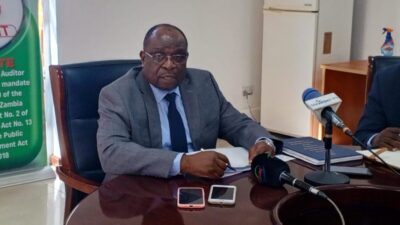The United Nations Population Fund (UNFPA) and the Midwives Association of Zambia (MAZ) have signed a strategic partnership agreement aimed at enhancing the role of midwives in saving lives, particularly during humanitarian emergencies.
The collaboration will focus on building the capacity of midwives to deliver life-saving care through the Minimum Initial Service Package (MISP) and Emergency Obstetric and Newborn Care (EmONC).
It also includes support for advocacy efforts toward greater investment in midwifery-led primary health care.
In a statement issued in Lusaka on Monday, UNFPA Zambia Representative, Seth Broekman, commended Zambia’s progress in reducing maternal and neonatal mortality.
“Over the last three decades, Zambia’s maternal mortality rate has declined by 75 percent—from 752 deaths per 100,000 live births in 1994 to 187 in 2024,” Broekman said. “However, this still falls short of the government’s goal to reduce maternal mortality to 100 by 2021.”
She added that the Sustainable Development Goal (SDG) target for 2030 is to reduce the global maternal mortality ratio to fewer than 70 deaths per 100,000 live births.
Broekman further noted that humanitarian and climate-related crises, such as floods, disease outbreaks, and the recent drought—the worst in 40 years—have underscored the need for resilience-building and emergency preparedness within health systems.
“These emergencies strain the health system and often disrupt access to essential health services, including sexual and reproductive health and rights (SRHR) information and services,” she said.
“UNFPA and MAZ are working to ensure that more midwives are trained, equipped, and empowered to meet the needs of women and newborns, even in the most challenging circumstances.”

Read More: First Lady, Mutinta, calls for enhanced health infrastructure in Northern Province
MAZ President, Sarah Ngoma, welcomed the capacity-building grant, pledging that the association would use the funds effectively to strengthen Zambia’s midwifery workforce and improve maternal and newborn health outcomes.
Ngoma said MAZ would use the agreement to roll out targeted training in MISP and EmONC, focusing on key competencies such as safe delivery, antenatal and postnatal care, and emergency response during natural disasters and health crises.
“These services are critical in protecting the lives of mothers and babies during emergencies,” she said.
Ngoma also noted that UNFPA was supporting MAZ in advocating for increased domestic investment in midwifery and amplifying the voices of midwives in shaping national health policies.
“By strengthening MAZ’s ability to mobilize support and resources, the partnership aims to ensure the long-term sustainability of midwifery services across the country,” she added.
WARNING! All rights reserved. This material, and other digital content on this website, may not be reproduced, published, broadcast, rewritten or redistributed in whole or in part without prior express permission from ZAMBIA MONITOR.












Comments